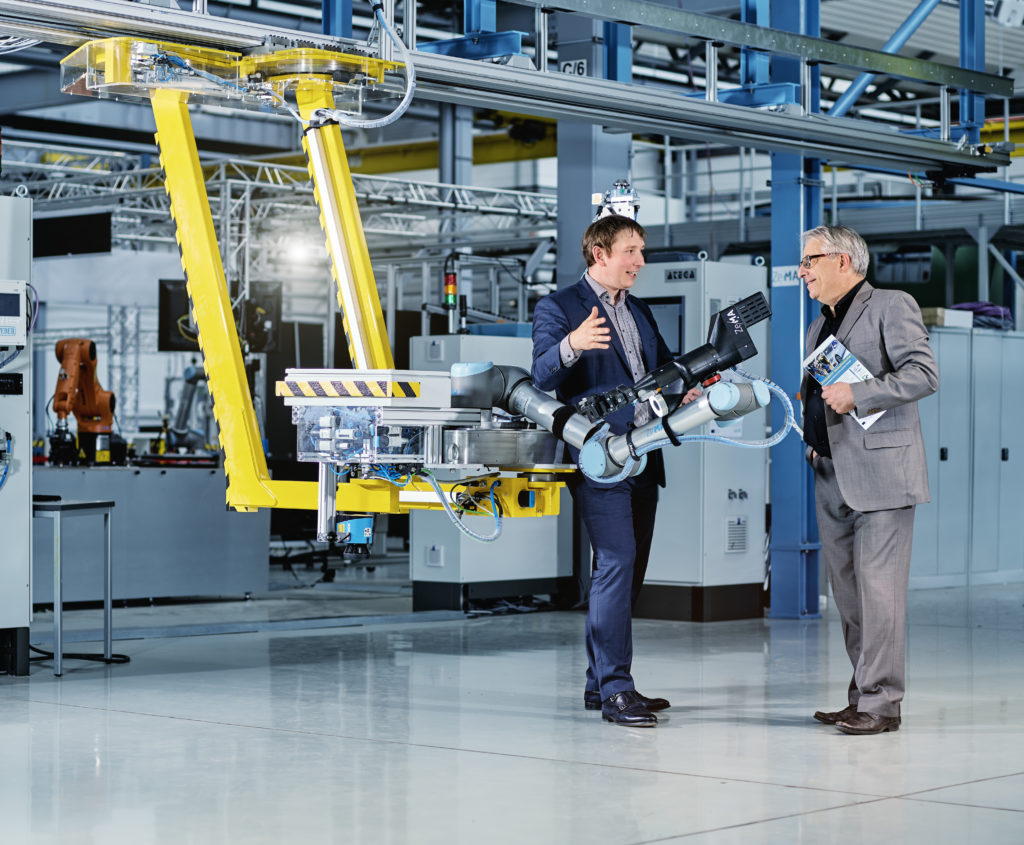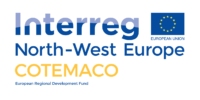COTEMACO – Competitiveness Through Efficient Man & Machine Collaboration
Problem definition and objectives
Research institutions as well as chambers and associations from Belgium, Germany, the Netherlands and the UK are joining forces to create development environments in the manufacturing environment and to help SMEs (small and medium-sized enterprises) to introduce new technologies into their production. The focus is on human-machine cooperation, which leads to greater flexibility in production.
Producing SMEs in North-West Europe have to struggle with their cost competitiveness compared to large-scale production in low-wage countries. In addition, there is a shortage of skilled labour, since employees in manufacturing SMEs are exposed to high physical strain and repetitive tasks. Flexible production that meets customer demands for higher personalisation and small batch sizes is a decisive and superficial competitive advantage that secures jobs in the region. Nevertheless, most SMEs are reluctant to invest in e.g. modern technologies.

The project, which is an initiative of Interreg North-West Europe, aims to support around 60 SMEs in the automotive and food manufacturing industries with so-called “test environments” and to encourage them to integrate collaborative robotic systems and digital technologies into their business. Accordingly, in addition to increasing production flexibility, the relocation of production abroad will be curbed and the number of jobs in manufacturing increased, which will generally lead to an improvement in the competitiveness of the companies involved.
Procedure
In the project, new technologies are implemented in application examples – the aim is to move from the prototype in the laboratory environment to the transfer to production, taking into account the legal situation and certifications. Furthermore, awareness is raised and know-how regarding the potentials and limits of e.g. human-robot cooperation is transferred to decision-makers and planners as well as to production employees. Not only the ZeMA test environments are available for initial contact with the new technologies, but also those of the other transfer partners in the other regions. The equipment available in the test environments can be used directly for initial feasibility studies for the companies. This way, especially SMEs can test the latest technology without a risky investment. Besides testing new technology, it is also an advantage in terms of employee training. Employees can try out different setups in the test environments and gain experience without the pressure of working in real production.
Current project status and results
The four research partners (Flanders Make, ZeMA, FoodTech Brainport and the University of Lincoln) will each set up different environments in which SMEs in the specific sub-areas can test practical pilot applications. This will provide economic operators with an optimal environment to facilitate innovation and strengthen their competitiveness in North West Europe.

